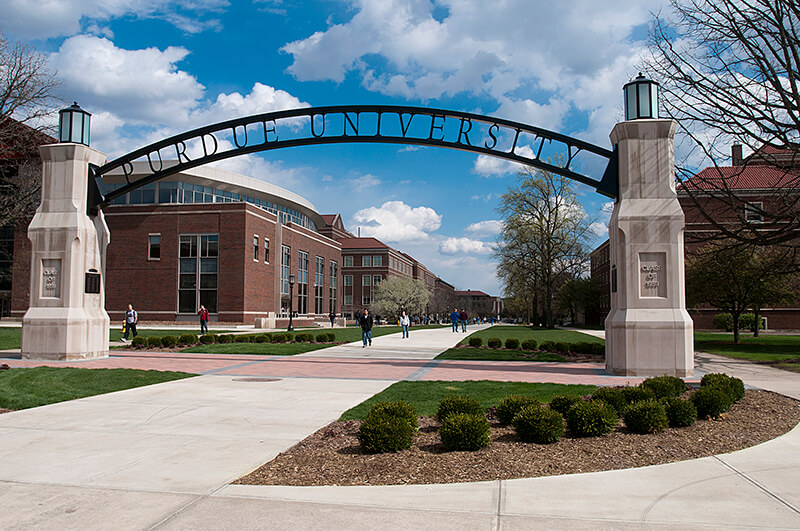August 3, 2020
You can order live poultry through the mail, but should you?

WEST LAFAYETTE, Ind. — The COVID-19 pandemic has strained nearly every sector of society, including the postal service. With experts continuing to recommend social distancing, fewer people are frequenting stores and record numbers are streaming to online venues to shop. Perhaps one of the most surprising items that can be purchased online and delivered through the mail are live chicks, within hours of hatching.
The Poultry Extension Collaborative (PEC), a new collective of poultry specialists from Purdue University, Virginia Polytechnic Institute and State University, North Carolina State University and the University of Maryland, recently published a guide for buying newly hatched chicks online. The team includes:
- Marisa Erasmus, assistant professor of animal sciences, Purdue University.
- Leonie Jacobs, assistant professor of animal welfare and behavior, Department of Animal and Poultry Sciences, Virginia Tech.
- Prafulla Regmi, assistant professor of applied animal welfare, North Carolina State.
- Shawna Weimer, assistant professor of animal and avian sciences, University of Maryland.
Erasmus said the ability to order chicks online is not a COVID-19 phenomenon. The service has been around for a long time, but due to the increase in postal traffic and online ordering, the venture has become much riskier for the chicks.
“It is better, at this point, to hold off on ordering because there are so many unknowns and packages are taking much longer to be delivered,” Erasmus added.
Weimer said that she interacts with online groups devoted to poultry enthusiasts and learned about an instance when a shipment of chicks arrived dead.
“I have learned a lot about people and chickens through these groups, and about how much our team is needed,” she said.
Chicks can survive a few days after hatching without food and water through their yolk reserves. But due to high volumes of mail and other uncertainties, it can take longer than 72 hours to deliver the chicks, which endangers their well-being. Other stressors include temperatures that are too high or too low and inappropriate handling or accidents during transit.
In most cases, chicks are placed in a specially ventilated box with padding to absorb feces without any source of food or water. While boxes are labeled to indicate live animals inside, most post office officials are not trained to cope with the handling of live animals.
“Newly hatched chicks require an environment with a high temperature, around 95 degrees Fahrenheit, because they are unable to regulate their body heat,” Jacobs explained.
If ordering live chicks through the mail, buyers should purchase through a National Poultry Improvement Plan (NPIP) certified establishment. An even safer course of action, Regmi said, is to either buy directly from a local hatchery or to have fertilized eggs shipped.
“Investing in a small incubator to help hatch the eggs is safer and, potentially, more cost effective,” Jacobs added. “At this point, people should really start exploring alternatives to having live chicks shipped, whether they are a business or keep chickens as a hobby.”
“As the COVID-19 pandemic develops, hatcheries may become better at preventing or reducing harm to the chicks during transit,” Erasmus added.
For the time being, however, she echoed Jacobs’ suggestion to wait or pursue other avenues to buy chicks.“
Also,” she said, “consider the postal workers. They are not used to dealing with live animals and they especially don’t want to deal with dead ones.”
To read the full PEC publication, visit https://bit.ly/3jYEslt.
Writer: Emma Ea Ambrose, 765-494-2406, eeambros@purdue.edu
Sources: Marisa Erasmus, merasmus@purdue.edu; Shawna Weimer, slweimer@umd.edu; Leonie Jacobs, jacobsl@vt.edu; Prafulla Regmi, pregmi@ncsu.edu
Journalists visiting campus: Journalists should follow Protect Purdue protocols and the following guidelines:
- Campus is open, but the number of people in spaces may be limited. We will be as accommodating as possible, but you may be asked to step out or report from another location.
- To enable access, particularly to campus buildings, we recommend you contact the Purdue News Service media contact listed on the release to let them know the nature of the visit and where you will be visiting. A News Service representative can facilitate safe access and may escort you on campus.
- Wear face masks inside any campus building. Wear face masks outdoors when social distancing of at least six feet is not possible.
Agricultural Communications: 765-494-8415;
Maureen Manier, Department Head, mmanier@purdue.edu

